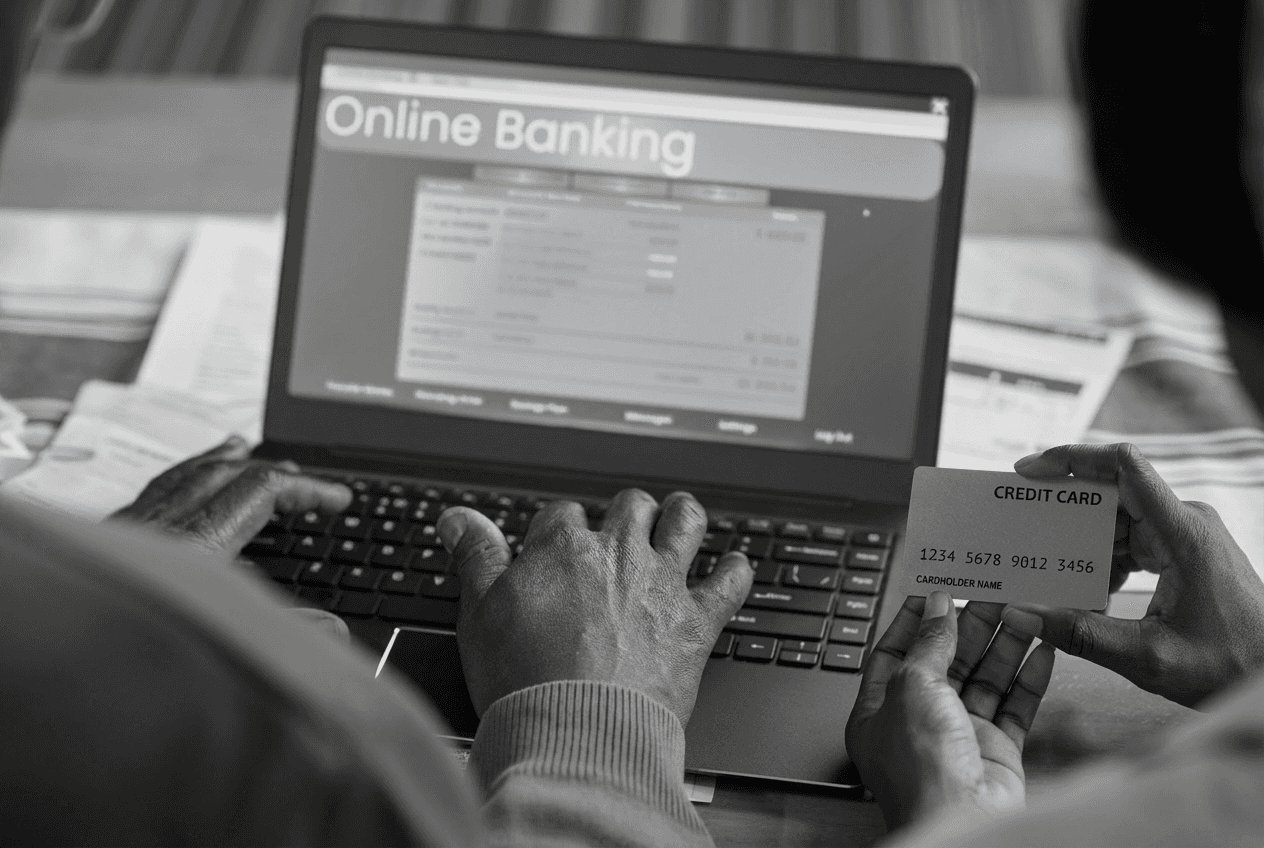July 8, 2025
July 8, 2025
July 8, 2025
Insider Threats in Nigerian Institutions: The Silent Danger Within
Nigeria’s biggest cyber threat isn’t always an outsider. Insider breaches — from careless employees to corrupt staff — are quietly damaging businesses and public trust. Learn how to detect, prevent, and respond to insider threats before they cost your company its future.
Nigeria’s biggest cyber threat isn’t always an outsider. Insider breaches — from careless employees to corrupt staff — are quietly damaging businesses and public trust. Learn how to detect, prevent, and respond to insider threats before they cost your company its future.
Not every cyberattack comes from hackers. Many originate inside organizations. Discover how insider threats are undermining Nigerian institutions — and what can be done to stop them.
When the Threat Sits Across the Office
Nigerian companies are spending millions fighting hackers, but what if the real danger already has a staff ID card?
A recent Guardian Nigeria report quotes cybersecurity experts warning that insider threats - employees, contractors, and trusted partners - pose Nigeria’s biggest cybersecurity risk in 2025.
Unlike outside attackers, insiders already have access. They know passwords, systems, and loopholes. When trust is weaponized, firewalls are useless.
Recent Cases That Exposed the Problem
In July 2025, the Nigeria Data Protection Commission (NDPC) disclosed that a major Lagos-based financial institution suffered a customer data leak traced to internal staff.
Vanguard Nigeria reported that employees exploited weak supervision to extract client KYC data for sale.
In 2024, an internal investigation at a leading telecom company revealed SIM registration agents were reselling verified subscriber data to online fraud rings.
Premium Times Nigeria detailed how “verified” NIN data appeared on black markets, traced to careless or corrupt insiders.
Even public institutions aren’t spared. The Central Bank of Nigeria (CBN) in 2023 reportedly dismissed staff members involved in information leakage to loan app operators and cryptocurrency agents.
BusinessDay Nigeria confirmed several internal investigations were ongoing.
The Numbers Behind Insider Cyber Risk
According to Check Point Research, insider incidents account for 35–40% of breaches in Africa.
Check Point: Africa’s Insider Threat Challenge shows that most originate from negligence - not malicious intent.
In Nigeria, the NDPC estimates that employee-related data mishandling contributed to over 20% of recorded privacy complaints in 2024–2025.
NDPC 2025 Annual Cybersecurity Report
Combine that with the rising cybercrime rate, where external hackers often bribe insiders to grant access, and you get a perfect storm.
Why It Happens: Nigeria’s Institutional Weak Spots
Weak Access Controls
Many organizations still use shared credentials or default logins. Once leaked, they open doors for anyone.
Poor Monitoring
Logs aren’t audited, leaving malicious behavior undetected for months.
Low Cybersecurity Awareness
A staff member who clicks phishing links or uploads files to personal drives may not even realize the damage.
Corruption & Economic Pressure
In an economy battling inflation and unemployment, bribery or “side hustles” involving data become attractive.
Lack of Consequences
Few insider breaches end in prosecution. Many cases are settled quietly to protect brand reputation.
As TechEconomy.ng put it, “the next cyberwar may be fought not with code, but with payroll.”
TechEconomy: Insider Risk and Corporate Sabotage in Nigeria
The Cost to Nigerian Businesses
Financial loss – Average insider breach cost in Africa is $10.5 million, according to IBM’s global report.
Customer distrust – Leaked KYC or payment data causes permanent brand damage.
Legal risk – NDPC fines and sanctions for data breaches are increasing.
Operational downtime – Breaches often force shutdowns for forensic analysis.
What Nigerian Organizations Should Do
1. Strengthen Access Management
Implement role-based access control (RBAC) and least privilege policies.
Revoke old or unused accounts immediately after staff exit.
2. Invest in Monitoring and Analytics
Deploy user behavior analytics (UBA) to detect suspicious activity (like after-hours access).
Use data loss prevention (DLP) tools to block unauthorized transfers.
3. Build a Security Culture
Conduct continuous cybersecurity awareness and insider risk training.
Encourage anonymous reporting of suspicious behavior.
4. Enforce Accountability
Create clear disciplinary policies for data misuse.
Publicize enforcement actions internally - it builds deterrence.
5. Protect Sensitive Data
Encrypt all critical customer and financial records.
Use digital verification platforms (like ProfiledNG’s verification suite) to ensure only authorized staff handle identity-sensitive processes.
Regulatory and National Action Needed
The Nigeria Data Protection Commission (NDPC) and NITDA have increased enforcement in 2025, but the pace must accelerate.
Leadership Nigeria reports that the NDPC now mandates every organization to have a Data Protection Officer (DPO) and submit breach notifications within 72 hours.
Meanwhile, NITDA is integrating insider risk considerations into its National Cybersecurity Policy 2026 roadmap.
TechNext Nigeria confirms that protecting “internal digital assets and people risk” is a strategic pillar.
But policies alone won’t fix this. Institutions must internalize cybersecurity as a culture, not compliance paperwork.
Final Thoughts: The Enemy Within
In 2025, Nigerian organizations face two types of attackers - those trying to break in, and those already inside.
Insider threats are harder to detect, more damaging, and often overlooked.
As one cybersecurity expert told The Guardian Nigeria:
“We build taller walls for external hackers while leaving the back door open for insiders.”
That door needs to close - permanently.
To prevent insider fraud, data leaks, or staff-aided scams, Nigerian institutions must pair technology with trust - and enforce it daily.
Tools like Profiled Nigeria make it possible to vet, verify, and monitor personnel before giving access to sensitive systems - because not everyone behind your firewall is on your side.
Not every cyberattack comes from hackers. Many originate inside organizations. Discover how insider threats are undermining Nigerian institutions — and what can be done to stop them.
When the Threat Sits Across the Office
Nigerian companies are spending millions fighting hackers, but what if the real danger already has a staff ID card?
A recent Guardian Nigeria report quotes cybersecurity experts warning that insider threats - employees, contractors, and trusted partners - pose Nigeria’s biggest cybersecurity risk in 2025.
Unlike outside attackers, insiders already have access. They know passwords, systems, and loopholes. When trust is weaponized, firewalls are useless.
Recent Cases That Exposed the Problem
In July 2025, the Nigeria Data Protection Commission (NDPC) disclosed that a major Lagos-based financial institution suffered a customer data leak traced to internal staff.
Vanguard Nigeria reported that employees exploited weak supervision to extract client KYC data for sale.
In 2024, an internal investigation at a leading telecom company revealed SIM registration agents were reselling verified subscriber data to online fraud rings.
Premium Times Nigeria detailed how “verified” NIN data appeared on black markets, traced to careless or corrupt insiders.
Even public institutions aren’t spared. The Central Bank of Nigeria (CBN) in 2023 reportedly dismissed staff members involved in information leakage to loan app operators and cryptocurrency agents.
BusinessDay Nigeria confirmed several internal investigations were ongoing.
The Numbers Behind Insider Cyber Risk
According to Check Point Research, insider incidents account for 35–40% of breaches in Africa.
Check Point: Africa’s Insider Threat Challenge shows that most originate from negligence - not malicious intent.
In Nigeria, the NDPC estimates that employee-related data mishandling contributed to over 20% of recorded privacy complaints in 2024–2025.
NDPC 2025 Annual Cybersecurity Report
Combine that with the rising cybercrime rate, where external hackers often bribe insiders to grant access, and you get a perfect storm.
Why It Happens: Nigeria’s Institutional Weak Spots
Weak Access Controls
Many organizations still use shared credentials or default logins. Once leaked, they open doors for anyone.
Poor Monitoring
Logs aren’t audited, leaving malicious behavior undetected for months.
Low Cybersecurity Awareness
A staff member who clicks phishing links or uploads files to personal drives may not even realize the damage.
Corruption & Economic Pressure
In an economy battling inflation and unemployment, bribery or “side hustles” involving data become attractive.
Lack of Consequences
Few insider breaches end in prosecution. Many cases are settled quietly to protect brand reputation.
As TechEconomy.ng put it, “the next cyberwar may be fought not with code, but with payroll.”
TechEconomy: Insider Risk and Corporate Sabotage in Nigeria
The Cost to Nigerian Businesses
Financial loss – Average insider breach cost in Africa is $10.5 million, according to IBM’s global report.
Customer distrust – Leaked KYC or payment data causes permanent brand damage.
Legal risk – NDPC fines and sanctions for data breaches are increasing.
Operational downtime – Breaches often force shutdowns for forensic analysis.
What Nigerian Organizations Should Do
1. Strengthen Access Management
Implement role-based access control (RBAC) and least privilege policies.
Revoke old or unused accounts immediately after staff exit.
2. Invest in Monitoring and Analytics
Deploy user behavior analytics (UBA) to detect suspicious activity (like after-hours access).
Use data loss prevention (DLP) tools to block unauthorized transfers.
3. Build a Security Culture
Conduct continuous cybersecurity awareness and insider risk training.
Encourage anonymous reporting of suspicious behavior.
4. Enforce Accountability
Create clear disciplinary policies for data misuse.
Publicize enforcement actions internally - it builds deterrence.
5. Protect Sensitive Data
Encrypt all critical customer and financial records.
Use digital verification platforms (like ProfiledNG’s verification suite) to ensure only authorized staff handle identity-sensitive processes.
Regulatory and National Action Needed
The Nigeria Data Protection Commission (NDPC) and NITDA have increased enforcement in 2025, but the pace must accelerate.
Leadership Nigeria reports that the NDPC now mandates every organization to have a Data Protection Officer (DPO) and submit breach notifications within 72 hours.
Meanwhile, NITDA is integrating insider risk considerations into its National Cybersecurity Policy 2026 roadmap.
TechNext Nigeria confirms that protecting “internal digital assets and people risk” is a strategic pillar.
But policies alone won’t fix this. Institutions must internalize cybersecurity as a culture, not compliance paperwork.
Final Thoughts: The Enemy Within
In 2025, Nigerian organizations face two types of attackers - those trying to break in, and those already inside.
Insider threats are harder to detect, more damaging, and often overlooked.
As one cybersecurity expert told The Guardian Nigeria:
“We build taller walls for external hackers while leaving the back door open for insiders.”
That door needs to close - permanently.
To prevent insider fraud, data leaks, or staff-aided scams, Nigerian institutions must pair technology with trust - and enforce it daily.
Tools like Profiled Nigeria make it possible to vet, verify, and monitor personnel before giving access to sensitive systems - because not everyone behind your firewall is on your side.











